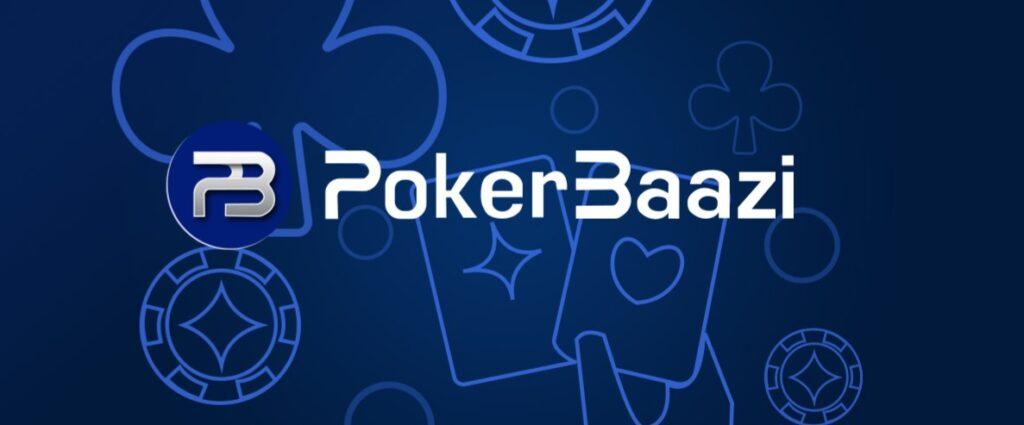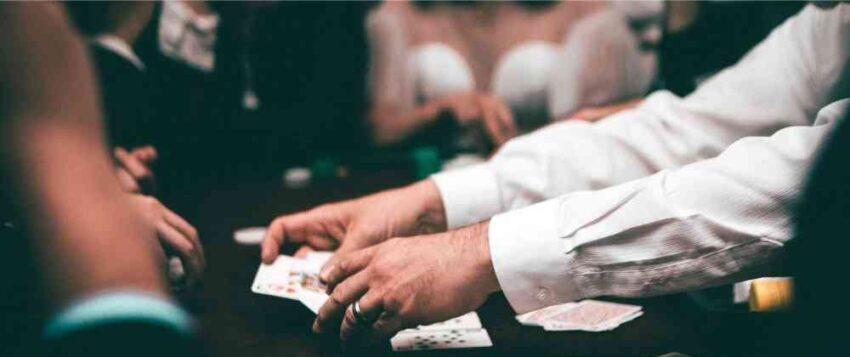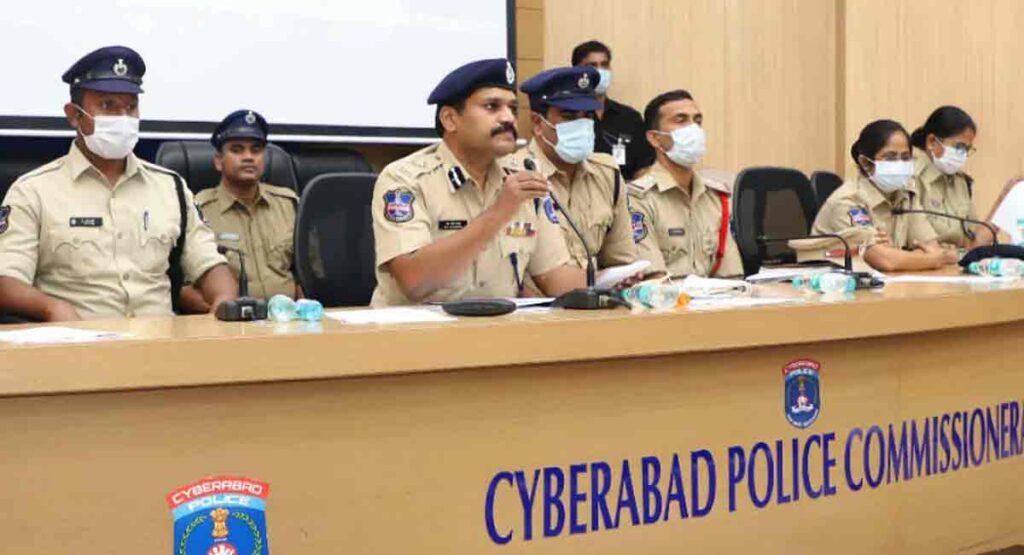Hyderabadi techies are becoming big losers in online gaming addiction. They are losing big money, spending stressful and debt-ridden life, and becoming more prone to suicidal attempts. This is the alarming situation prevails.
Online gaming has become a popular pastime among young people in recent years. From the thrill of betting on sports matches to the excitement of playing virtual card games, there are a plethora of options available online. One such game that has gained immense popularity in India is the Dream11 fantasy sports platform. However, a new online gaming addiction has emerged, with youngsters losing big on PokerBaazi, an online poker platform.

Dream11, a fantasy sports platform, allows users to create virtual teams of real players and compete against each other based on the performance of these players in actual matches. The platform has gained immense popularity in India, with millions of users participating in daily fantasy sports leagues. While Dream11 has been the go-to platform for sports enthusiasts, a new trend of online poker has emerged among young people, with the PokerBaazi platform gaining significant traction.

PokerBaazi, an online poker platform, allows users to play poker games with real money against other players. The platform has gained immense popularity among young people in India, who are lured by the thrill of winning big money. However, the downside of this online gaming addiction is that young people are losing big on PokerBaazi, with many ending up in debt.
The problem of online gaming addiction is not new, but the trend of youngsters losing big on PokerBaazi is alarming. The lure of winning big money has made many young people addicted to online poker, leading to financial ruin. The addiction to online poker is similar to that of gambling addiction, with many users unable to control their urge to play and losing large sums of money.
Many players are enthusiastic to bet on Dream11 and Lotus365. On the flipside, many are attending Gamblers’ Association meetings, reading about the 12-step recovery programme.
Most of the educated youth are addicted to online gaming, including games like rummy, poker, and fantasy sports. And they’re losing money fast.
The Indian Premier League (IPL) season, especially, is the time for betting. Cricket matches provide ample opportunities for enthusiasts to place bets on apps such as Dream11 and Lotus365. The barriers to entry are low, the potential reward is high, and the regulatory framework is weak. Along the way, more and more people across age groups and income statuses are being inextricably sucked into a complex web of addiction, debt, and new apps promising attractive rewards. What makes things even more confusing is that online gaming is being socially reinforced through shiny advertisements, which makes risking money seem kosher.
It’s a problem for everyone involved — punters, police, psychologists.
“You’ll be surprised at the ways these apps keep you hooked,” says Surya Reddy, a techie from Hyderabad, who was addicted to playing poker on apps. “They got me so hooked, no other avenue gave me the same kind of thrill. And I would feel like I was losing because of my own stupidity or because I hadn’t cracked a code — I couldn’t believe that my luck was bad. In reality, the game is rigged against you.”
And it all starts with the first few wins.
“You might win once in a while, which reconfirms your faith in your luck,” adds Surya. “But in the long run, there’s no faith — they kick you out of all your money.”
The cycle of addiction

Over the span of six months before February 2023, Surya Reddy lost Rs 12 lakh.
Awake or asleep, all he could think of was poker. He’d wake up, place a few bets on the app PokerBaazi, get ready for work, and then check for updates again. Surya was never focused on work during office hours — instead, he was spending roughly eight hours a day exclusively on the app.
“My entire mental and physical occupation was poker, poker, poker,” says Surya. “I was always thinking of the app. I was never in tune with reality.”
He recognised that his pattern of addiction was resurfacing. He only began to claw himself out when it began to seriously affect his physical health and relationships. When he wasn’t thinking about poker, he was plagued with headaches and anxiety. Surya is now indebted to family and friends and has loans and EMIs to pay — as well as gastric issues, including an ulcer that his doctor says is stress-related.
“Online gambling is a trap because it’s so easy,” says Surya Reddy. “The phone is in your hand, it’s always there with you — and if you have balance in your bank, it just takes seconds to sign it over.”
At first, he was winning — and winning big. His streak of wins included Rs 80,000, then Rs 60,000, and then Rs 50,000. But he could never cash it out because the next bet would loot him. Over time, he realised he was fighting a losing battle. His confidence, health, and finances were at a breaking point.
People around him told him to delete the app, but he just couldn’t look away from it.
“It was a horrible experience. It (gambling) was all I could think of. And I couldn’t look away because of my addictive personality — I was always thinking about my losses and how to recover them. But I was also thinking about the game because it had seemed authentic, like a ray of hope,” says Surya.
In her book ‘Addiction by Design’, anthropologist Natasha Dow Schüll writes about what she terms the “machine zone” — a trance-like state in which addicts play to keep on playing, despite any physical or financial effects.
It’s like a personal buffer zone. Surya — and people like him — were always in “the zone”.
Addressing addiction
“Remember, don’t use bad language while talking today,” the attendees are cautioned as the GA session begins on Zoom.
The Zoom meetings are held in Hindi but are open to all; regional sessions are conducted across India.
The GA group holds regular meetings, opening each session with a reading of their literature on addiction and the 12-step recovery programme. On weekends, they hold two meetings a day — in the afternoon and at night — in case anyone worried about relapsing needs urgent attention.
The power and prayer in this GA meeting only underscore the problem that addicts face. Each user unmutes themselves to share their own story of helplessness and the way in which addiction ruined their relationships and finances. One says he was addicted to the stock market. Another spoke of his wife’s heartbreak when he had pawned all her jewellery to fuel his addiction. Yet another talked about how people around him took advantage of the fact that he couldn’t resist placing bets on the tiniest of occurrences, eventually realising he was spending his wages only on debt repayments.
And this is not a problem restricted to the middle class. The affluent struggle with addiction too — even if they don’t realise it immediately.
A Sigmund Freud runs up to enthusiastically greet visitors at Hyderabad’s Veda Rehabilitation and Wellness Center. Freud is a therapy dog trained to be attuned to the emotional and psychological needs of those around him.
He is one part of the holistic rehabilitation package Veda offers its patients, who volunteer to check into the rehab centre. Most patients come in to address their depression or anxiety issues or addiction to drugs or alcohol.
It is during therapy that they realise they’re also addicted to gambling. Therapists at Veda say that gambling is a byproduct of behavioural patterns and dependency, and most people don’t seek help until it affects their ability to function.
Gambling essentially gives players a chance to tempt fate by creating a public setting of risk. It’s like a “character contest” that allows players to display their nerve, composure, courage, and integrity, writes sociologist Erving Goffman. Notable anthropologist Clifford Geertz describes something similar in his seminal work Deep Play: Notes on the Balinese Cockfight — the less predictable a contest, the more invested the players in its outcome.
And for those who can afford to be risky, the stakes are higher — and they seldom recognise it as a problem.
“People who come here are wealthy, so they don’t see it as a problem, especially because gambling is seen as a recreational activity,” says Soma Devi, an in-house psychologist at Veda. “Our patients would only bring up gambling when they’re in debt or if it’s affecting their business or their relationships. It happens to a very niche population.”
People who are cash-strapped recognise their addiction to gambling more readily than the wealthy. It’s only when gamers start lying, stealing, and manipulating others that they realise it’s a problem. “It becomes hard to show people the consequences of gambling without hard evidence — like debt,” says Soma.
One patient only admitted to gambling six weeks into his eight-week programme, after intensive therapy addressed his other issues. He became resistant to help beyond that because of the deep shame around it.
The possibility of people walking in voluntarily to a luxury rehab like Veda to address only gambling is close to zero, according to Soma. “Admitting to themselves that there’s a problem makes it true — people would rather live in denial.”
A loophole for police

In Hyderabad, the tech capital, the Central Crime Branch and Cyber Cell has an entire unit that spends most of its time looking at cases of online gaming.
While all online gaming isn’t gambling, some games require risking money — which could take users down a rabbit hole of addiction. There are a multitude of apps that are not always available on the App Store or Play Store and require special links to be downloaded directly from a web browser. So when a crime occurs, it is difficult to trace the digital footprint. Sub-bookies sell IDs to these apps for around Rs 1,000 and make around a 5 per cent commission on each sale.
Like most cybercrimes, it leaves no money trail, making it difficult to trace the perpetrator. The police are able to nab only sub-bookies — the bookies at the top of the chain of command are often abroad in countries like Thailand and cities like Dubai. If not abroad, they leave Hyderabad and move to another Indian city during the betting season. The apps are based on foreign servers and bookies contact people in India to act as sub-bookies.
And sub-bookies are often addicted to online gaming themselves — finding themselves in debt, they agree to sell IDs to others to clear their dues to the app.
This is how the cycle of addiction continues. So even if people are winning, they are losing, says one police officer.
“The law in general is weak and has grey zones,” says Stephen Ravindra, Commissioner of Cyberabad. “The judiciary is very particular on games of skill versus games of chance, but since the crime itself is non-cognisable now, it’s difficult to hold people accountable for betting.”
Online gaming exists in a grey zone in India. The issue at the heart of it is the distinction between games of skill and games of chance — poker, rummy, and fantasy sports sit neatly in the grey zone as they have been declared games that require skill to play, even though they all hinge on making risky monetary decisions.
What law says?
“Wherever money is staked, it causes issues like addiction and financial losses, which is why governments have tried to step in,” says Rahul Rao, Hyderabad-based technology and gaming lawyer. “Fantasy apps don’t have as much responsible gameplay. The propensity to lose money is much higher in rummy, which is why some of the online rummy websites have tried to introduce self-regulatory and responsible gaming measures like setting deposit and time limits, sending periodic reminders to players and allowing themselves to permanently exclude and delete their account from the website.”
There’s a regulatory conundrum here too. While the Ministry of Electronics and Information Technology came up with amendments to the Information Technology (Intermediary Guidelines and Digital Media Ethics code) rules, 2021on 6 April 2023, state governments ultimately decide on how to address the issue as gambling is on the state list. It’s why the Hyderabad Police needs permission from the High Court before carrying out raids and arrests related to online gambling — it’s been made a non-cognisable offence in the state.
Rahul Rao says that states prioritise online gaming as it is an issue based on the social circumstances and socioeconomic factors shaping the state.
“The main issues of whether states can constitutionally impose a complete ban on online games played for stakes even if they are held to be games involving skill and whether states or the central government have legislative competence to regulate online gaming is a matter that is yet to be conclusively decided by the Supreme Court. There are appeals pending on this issue before the Supreme Court on these issues, once the apex court gives its final verdict, this regulatory conundrum is expected to be resolved to a great extent,” the lawyer adds.
The police usually get tip-offs from disgruntled users who have been cheated out of their money by shady apps. And they’re not sure of the legalities of this either. One officer admitted to recently Googling whether it is legal for apps like Lotus365 to advertise in such a large way.
“We’re not able to go to the top end just yet,” says one police officer at the Central Crime Bureau. “We only catch the players at the bottom, and then hand over investigation details to their concerned police station.”
Regulatory grey hole
There’s a difference between responsible apps and those that are based on servers abroad.
Gaming platforms like Dream11 and Mobile Premier League (MPL) are more aware of the complex regulatory framework, even if they have to keep adjusting their regulatory measures as state governments come up with real-time rules. Addressing addiction is a priority for the gaming platforms.
“There are several responsible game-play measures and safety tools that are already being implemented by several of our member companies, and that our self-regulatory framework provides for, which are also now obligations that will need to be incorporated by companies under the newly notified IT rules for online gaming,” says Roland Landers, CEO of the All India Gaming Federation — the oldest and largest industry association for online gaming in the country.
The measures include an option for players to self-exclude from the games for a specific period of time and establish mechanisms to pre-specify the amount and time limits, which, if exceeded, will result in users getting warning messages.
“Wherever money is involved, there’s an issue,” says Rahul Rao. “Fantasy apps don’t have as much responsible gameplay, while the propensity to lose money is much higher in rummy, which is why they have to introduce regulatory measures.”
And industry stalwarts are welcoming the Centre’s intervention in online gaming regulation. “The newly notified rules are a welcome step towards regulating online gaming under the Indian Information Technology Act, and acknowledging the long-standing demand of the gamers and the online gaming industry,” says Landers. “These rules will go a long way in promoting consumer interest while helping the industry grow responsibly and transparently and will also help in curbing the menace of anti-national and illegal offshore gambling sites, which have been proliferating in the last few years.”
But all online games are designed to keep players hooked, not just gaming apps. Like Surya and Hyderabad Police have noticed, online gaming apps like Dream11 are not for one-time use — even if responsible, they do lure players back to play.
In Surya’s case, PokerBaazi offered weekly commissions according to what the players raked in. The longest he was able to abstain from the app was three days, but the promise of the weekly commission triggered him.
“Out of fury and desperation, especially when I was losing too much, I would place crazy bets,” he says. “And then it would come crashing down. Again.”
Eventually, he learned that the House always wins.
Community-driven support
Despite the effort of the central and state governments, the regulatory trickledown is slow. More and more people are stepping into the world of online gaming, aided by the constant reinforcement of celebrity endorsements and IPL ads.
The Hyderabad police referred a young techie couple to Parihar, their counselling centre that focuses on women’s and families’ welfare, over a maladjustment case. When they came in for counselling, their therapist realised that the root of the couple’s problem was online gaming.
While they were both interested in fantasy sports, the husband became addicted — and lost Rs 70 lakh. The couple began to bicker and fight and took it to the police. During their sessions at Parihar, which were also attended by the couples’ parents, the two agreed to work it out. The husband agreed to get help for his addiction. They are still together, though they haven’t confirmed whether his addiction has continued.
At GA, the conversation is still about whether addiction is an illness. The group consensus is that it is. But for them, the path toward healing is clear and community driven.
“I’ve never taken my wife to the cinema in the last 20 years. But tomorrow, we’re going to watch a movie,” says a former addict amusedly. “Last week, we went to the circus. We never had the money for all this because I used to be addicted to the stock market, and then I got into apps. But today, I’m able to do these small-small things because of this group.”
There’s a brief silence until someone unmutes themselves. “Keep sharing. We love you and need you. Even if others laugh at it, we know how much of a problem gambling is,” they say.
Finding Solutions to this menace
The addictive nature of online poker is due to the constant thrill of winning and the excitement of playing against other players. Many young people get hooked to the game, thinking they can win big and change their fortunes. However, the reality is that most players end up losing big and getting into debt, leading to financial and emotional distress.
The problem of online gaming addiction is not limited to PokerBaazi; other online gaming platforms are also contributing to the problem. The ease of access to these platforms and the lack of regulations and safeguards have made it easy for young people to get addicted to online gaming.
The solution to this problem lies in educating young people about the risks of online gaming addiction and providing them with support to overcome the addiction. Parents and educators need to be aware of the dangers of online gaming addiction and take steps to prevent young people from getting addicted to online gaming platforms.
Lastly, the trend of youngsters losing big on PokerBaazi is alarming and needs to be addressed urgently. Online gaming addiction is a serious problem that can lead to financial and emotional distress. Young people need to be educated about the risks of online gaming addiction and provided with support to overcome the addiction. The government and online gaming platforms need to take steps to regulate online gaming and provide safeguards to prevent young people from getting addicted to online gaming. It is essential to act now to prevent this problem from getting out of hand and protect our young people from the dangers of online gaming addiction. #hydnews #khabarlive